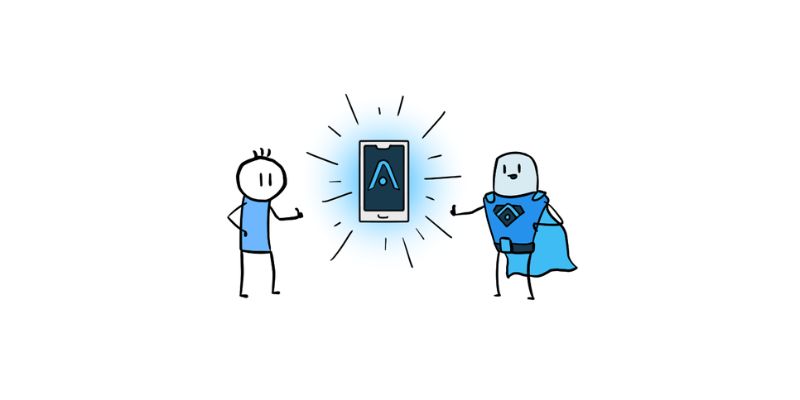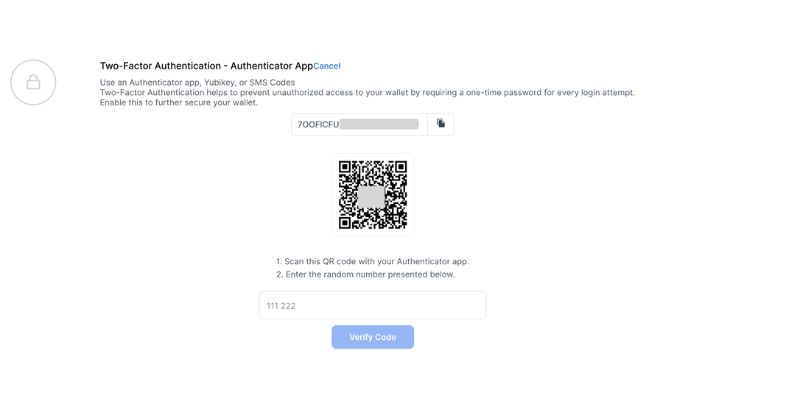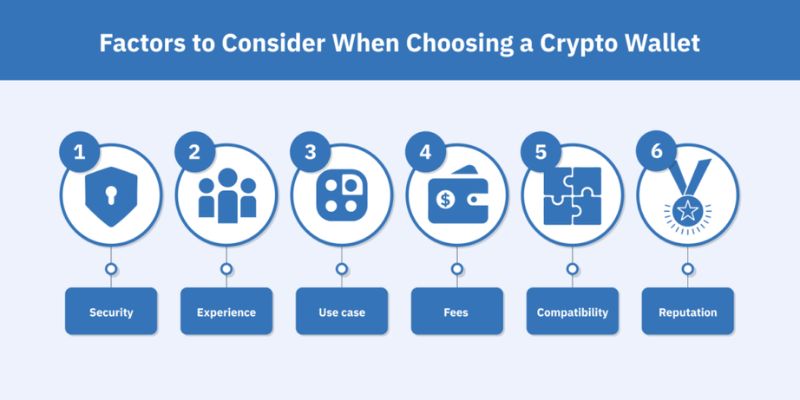Using crypto wallet on public Wi-Fi? Think twice before you click! Public hotspots can be a hacker’s playground. Your hard-earned digital cash could vanish in a blink. I’ll show you how to keep your crypto safe from sly cyber-thieves. It’s dire to know the risks when you’re about to send or check your stash. The internet is a wild spot, and even wilder when you’re dealing with invisible money. I’ve got the drill down for bulletproofing your blockchain wallet in dodgy Wi-Fi zones. Let’s shut the door on those hackers and put a steel fence around your digital treasure.
Understanding the Risks of Public Wi-Fi for Crypto Wallets
Blockchain Wallet Vulnerabilities on Insecure Networks
We often see public Wi-Fi as a gift. It’s free, it’s easy, and it’s everywhere. But here’s the catch – it’s not safe, especially for your crypto wallet. On these networks, hackers can steal your digital currency. They can do this by finding weak spots in the network. They look for people who don’t secure their data.
What is a blockchain wallet risk on public Wi-Fi? Someone might see your private keys. That’s like handing over the key to your safe. Use secure networks to keep your cash safe. When you use a public spot, you play with fire.
Think of every public network as a place full of spies. Spies who wait to grab your precious crypto. Your digital assets could vanish in a snap. For secure crypto storage on shared networks, you need to lock your online door. And keep your wallet away from prying eyes.
The Perils of Performing Crypto Transactions Over Public Internet
It’s tempting to check your crypto balance while sipping coffee at the cafe. But doing crypto transactions on public Wi-Fi is like counting cash out loud in a crowd. Who does that? It’s dangerous because anyone might hear you and follow you home. That’s what happens when you trade crypto on unsecured Wi-Fi.
How do you protect digital currency on public internet? First, remember: always avoid public networks for money moves. Instead, find a private spot. If you must use public Wi-Fi, then guard up. Use VPNs for a shield and two-factor authentication like a secret handshake. Nobody can get in unless they know the moves.
Encryption is your invisible armor. It scrambles your data into code that hackers can’t read. Always check for an SSL connection, which is a strong link, when trading online. It helps make sure your crypto chats stay hush-hush.
In short, stay smart. The risks of public Wi-Fi are big, but good moves keep your crypto safe. Use public Wi-Fi only as a last resort for your digital wallet. And even then, be ready to block cyber threats at every turn. This will let you enjoy your coffee and your crypto with peace of mind.
Proactive Measures for Crypto Wallet Security on Public Wi-Fi
Essential Encryption and Secure Connection Practices
When you use public Wi-Fi, think of it as a busy street. Anyone can watch your moves. Using crypto wallets on these networks needs extra care. First, always encrypt what you send over the web. Encryption scrambles your data so only the right person can read it. Your wallet app should use strong encryption by default.
Next, check for SSL (Secure Socket Layer) connections on sites you visit. SSL makes a secure channel over the internet. You can spot this in your browser. Look for a padlock symbol or “https” at the start of the web address. This means your data to and from the site is safe.
The Role of VPNs and Two-Factor Authentication in Safeguarding Digital Assets
A VPN, or Virtual Private Network, is your secret tunnel through the busy street of public Wi-Fi. It hides your data from prying eyes. With a VPN, even if someone hacks the network, they can’t easily get to your crypto wallet. Always turn on your VPN before doing anything with your wallet.
Two-factor authentication (2FA) adds an extra lock on your digital money box. Even with your password, a thief can’t open it without the second key. This could be a code from your phone or a fingerprint. So, use 2FA always for your wallet’s safety.
Public Wi-Fi doesn’t have to be a no-go for crypto. Just be smart and stay safe. Keep your virtual coins locked up tight, so you can trade, buy, or just check on them without worry. Your future self will thank you.
Best Practices for Crypto Trading on Shared Networks
Recognizing and Avoiding Phishing Attacks
Let’s talk about keeping your crypto safe on public Wi-Fi. First, watch out for phishing. Phishers trick you into giving them your info. They may send fake emails or set up fake websites. It’s easy to fall for these tricks on a public network. If an email or site seems fishy, trust your gut. Check the email address it comes from. Look for strange spelling or odd requests. If something asks for your crypto keys or password, it’s a scam.
Knowing this, take steps. Always verify who you’re talking to. A real crypto exchange won’t ask for your private keys by email. If you suspect phishing, do not click any links or download attachments. Instead, go straight to the source. Type the website’s address by hand to be sure you’re in the right place.
Securing your crypto means being a detective sometimes. Always think, “Is this real?” before acting. Look for warning signs. Ask yourself questions. How did I get to this site? Did a friend tell me about it, or did I get a weird email? A tip from a friend is one thing; an email out of the blue is another.
Now, if you’re phished and leak info, act quick. Contact your crypto service or bank. Change your passwords. Check your devices for viruses. Stay calm, but move fast to protect your assets.
Selecting and Maintaining Secure Mobile and Hardware Wallets
Next up, let’s talk wallets. For trading on shared networks, mobile and hardware wallets are key. Each has its pros and cons. Mobile wallets are easy to use. But they can be risky if your phone gets hacked. Hardware wallets are harder to crack but easy to lose.
Here’s the truth. A hardware wallet is your best bet on public Wi-Fi. It’s like a safe that never goes online unless you plug it in. That means hackers on a public network can’t touch it. Best practice? Use it when you’re at home or on a network you trust.
Now, let’s say you must use a mobile wallet in public. I get it; we can’t always wait. Here’s what to do. Turn on all the security features you can. That means a strong password that you change often. Use face or fingerprint lock if you can. Then, add another layer—two-factor authentication (2FA). It’s a must. With 2FA, even if someone steals your password, they can’t get in. It’s like having a second lock on your door.
You’ve also got to update your apps. Software updates are boring, I know. But they often have fixes for security holes. Old apps are like open doors for hackers. Close those doors by keeping your wallet app up to date.
Remember, public Wi-Fi is risky. If you must use it, be smart. Use a hardware wallet when possible. Turn on all the locks—passwords, 2FA, everything. Keep your apps fresh with updates. And keep a sharp eye out for phishing. Stay safe out there!
Advanced Security Strategies for Cryptocurrency Enthusiasts
Implementing Cold Storage Solutions Over Public Wi-Fi
Think of public Wi-Fi like a busy city street. Anyone can see what you’re doing. But unlike the street, hackers can grab your digital cash in seconds. To stop this, using cold storage is like putting your money in a safe under your bed. It’s offline, so thieves can’t reach it. When you’re on public Wi-Fi, keep your coins in cold storage.
Why cold storage? It’s simple and safe. Your private keys, which open your crypto wallet, stay offline. So, no one can steal them over the internet. Use a hardware wallet or a paper wallet for your cold storage. This way, even if you check your coins on public Wi-Fi, the bulk stays safe and sound.
Hardware wallets are small devices you plug into a computer to access your crypto. They’re tough for hackers to crack because your keys stay inside them. Paper wallets, though less common, are printouts of your keys. They work too, but don’t get them wet or lost! Both keep your digital dough locked away when you’re on a shared network.
Remember, public Wi-Fi is fine for browsing memes or checking emails. But for your crypto cash? Use cold storage instead.
Monitoring and Responding to Cyber Threats to Bitcoin Wallets
Cyber threats are like digital germs. They’re all over public Wi-Fi, waiting to infect your crypto wallet. You must play defense. Keep an eye on your wallet like it’s your baby. Use apps that track your wallet and send alerts for unusual actions. This way, you’ll know if someone tries to break in.
Always update your wallet app and devices. Updates fix security holes. Think of them as patching up holes in your house where thieves might sneak in. Use strong, unique passwords too. Mix letters, numbers, and symbols like a secret code. And change them often. They’re the keys to your digital safe.
To step it up, use two-factor authentication (2FA) for your wallets. It’s like having a guard ask for ID before letting someone in. Even if a hacker gets your password, they can’t get in without this second check. Most times, it’s a code sent to your phone or email.
One more tip: watch out for phishing scams. Phishing is when crooks trick you into giving them your keys. They might send fake emails or set up fake websites that look real. If you get a message or email that seems fishy, don’t click any links or give out info. When in doubt, check it out. Go directly to the source, like your crypto exchange or wallet’s official site, to see if it’s legit.
Stay sharp, crypto friends. Keep your coins safe, and enjoy using them without worry, even on public Wi-Fi.
We’ve tackled the dangers public Wi-Fi poses to crypto wallets, from exposed blockchain flaws to risky transactions. Remember, secure practices and robust encryption are your shields online. Using VPNs and two-factor authentication is key, like a sturdy lock for your digital gold.
Stay sharp; don’t fall for phishing scams. Pick wallets wisely, and keep them updated. For those going the extra mile, cold storage and constant vigilance against cyber threats are your best bets.
Keep this advice close. It’s not just about staying safe; it’s about smart trading on shared networks. Stay secure, trade with confidence.
Q&A :
Can I safely use my cryptocurrency wallet on public Wi-Fi?
Using your crypto wallet on public Wi-Fi is not recommended due to security concerns. Public Wi-Fi networks are often unsecured, making them a prime target for hackers who can potentially access your crypto wallet and steal your funds. If you must use public Wi-Fi, consider utilizing a Virtual Private Network (VPN) to encrypt your internet connection and protect your data.
What are the risks of accessing my crypto wallet on public Wi-Fi?
Accessing your crypto wallet on public Wi-Fi can expose you to several risks such as Man-in-the-Middle (MitM) attacks, where hackers intercept your data transmission, phishing schemes pretending to be legitimate Wi-Fi hotspots, and malware distribution through compromised networks. These security threats can compromise your wallet’s credentials, leading to unauthorized transactions or loss of funds.
How can I protect my crypto wallet while using public Wi-Fi?
To protect your crypto wallet on public Wi-Fi, you should always use a VPN to encrypt your online activities. Additionally, make sure your wallet’s software is up to date, apply strong passwords, enable two-factor authentication, and consider using hardware wallets or cold storage for added security. Be cautious about any wireless network you connect to and avoid performing any sensitive transactions until you’re on a secure, private connection.
Is it safe to log into a crypto exchange on public Wi-Fi?
Logging into a crypto exchange on public Wi-Fi is not safe due to the same vulnerabilities that affect crypto wallets. Public networks can leave your login credentials exposed to theft. To mitigate this risk, avoid accessing your exchange account on public networks, use strong and unique passwords, and activate two-factor authentication. Always prefer a secure, private network when trading or accessing your exchange account.
What alternatives to public Wi-Fi can I use to manage my crypto wallet securely?
To manage your crypto wallet securely, consider using your mobile data connection as it is generally more secure than public Wi-Fi. Use a trusted VPN service when connecting to any network that is not your own. If you need to perform a transaction and have no alternative to public Wi-Fi, ensure you have a reputable VPN active and that all security measures on your device and wallet are up to date. Additionally, for regular checks and balances, use a secure home or office network.






